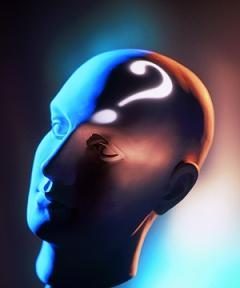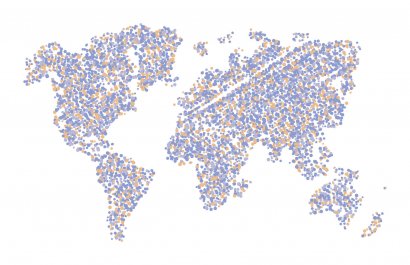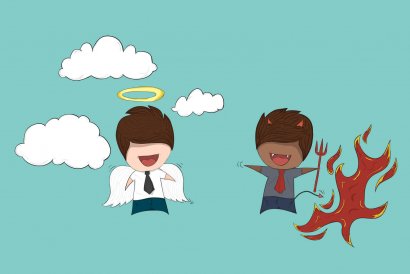 The term poiesis comes from the Greek and literally means production or creation. This word was originally used in the sphere of philosophy and art and through it reference was made to any creative process. If we add the prefix auto, which means by itself, the concept of autopoiesis is formed, which means creation of something from itself.
The term poiesis comes from the Greek and literally means production or creation. This word was originally used in the sphere of philosophy and art and through it reference was made to any creative process. If we add the prefix auto, which means by itself, the concept of autopoiesis is formed, which means creation of something from itself.
A neologism that was proposed by two Chilean biologists in the early 1970s
Questions about the origin of life and the evolution of living things constitute an intellectual challenge for biologists. We know the metabolic processes that affect organisms and that they seem to have a spontaneous life cycle. This general idea served as inspiration for Humberto Maturana and Francisco Varela to propose a new idea: every living organism produces itself. In other words, the living is autopoietic.
This implies that the phenomenon of life on our planet can be explained as if it were a system of molecules that is transformed cyclically from the system's own internal mechanism.
An idea that allows us to reflect on what life means
When observing any living organism, it is very likely that we ask ourselves a question about its origin. In this sense, biologists wonder which was the first bacterium and how it became more complex until later differentiated species appeared. We could say that the idea of autopoiesis is an epistemological approach, since it is a theory of knowledge about life itself.
Although the appearance of life on Earth is an enigma for biologists and astrobiologists, the idea of autopoiesis is presented as a possible solution to the enigma. Thus, according to the central thesis defended by their creators, all living phenomena are self-created from their own internal systems.
If we think of a serious illness, the doctor prescribes a treatment and gives the patient some guidelines for their healing, but the one who is really cured or not is the patient. In other words, we either heal ourselves or we die. This simple example tells us that humans are a biological system and its operation depends on the autopoietic mechanism. Death occurs when the mechanism of self-production stops working.
The idea of autopoiesis has philosophical implications
In the first place, the living does not have an end, since each biological entity depends on its own self-regulation.
On the other hand, if there is no purpose in nature, this means that there is no force or God that determines the future of living beings.
Lastly, Maturana and Varela's reflections on biology and autopoiesis were reflected in a book published in 1972, "On machines and living beings".
Fotolia photo: okalinichenko









